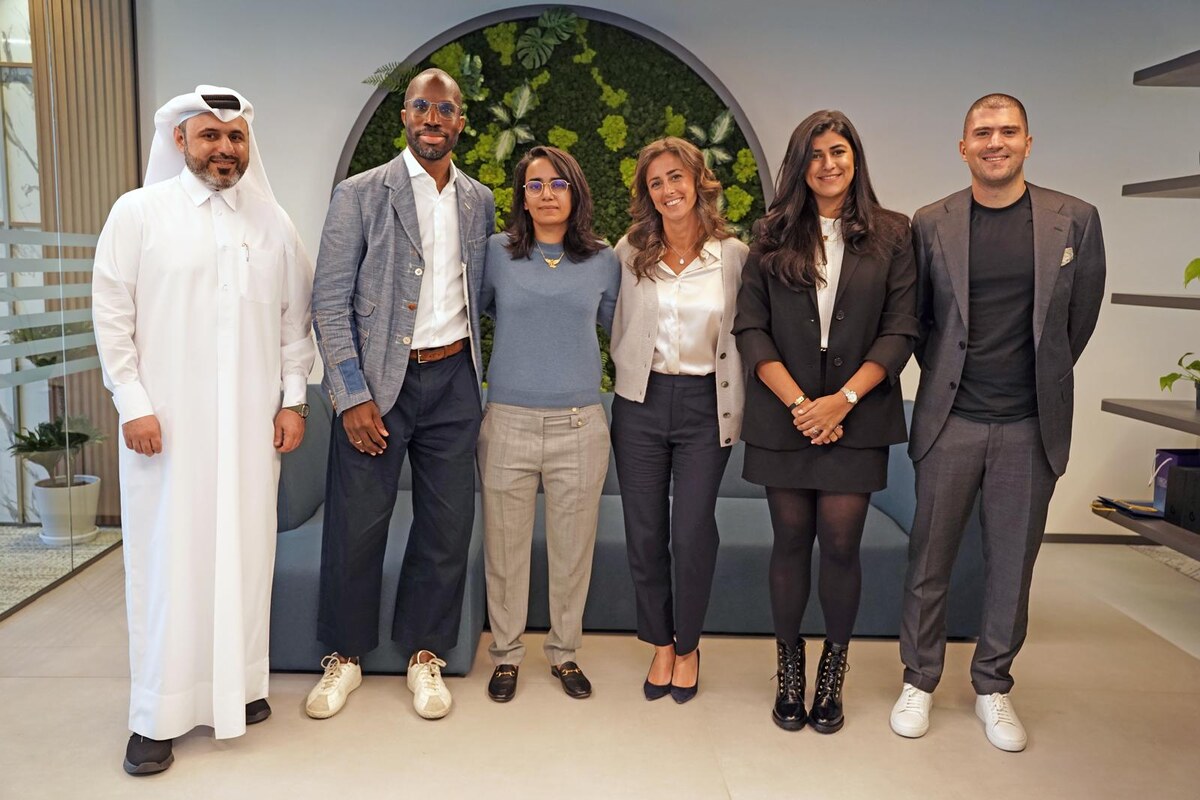RIYADH:The Middle East and North Africa region is registering the highest growth in the global renewable energy sector due to its relatively small current base and ambitious 2030 targets.
In its latest report, the International Energy Agency said the region shows the highest growth factor based on its ambitions — 4.5 times its current base, led by Saudi Arabia, Egypt and Algeria.
“The MENA region accounts for less than 8 percent of global emissions from power generation and heat production. It aims to realize its significant untapped renewable energy potential by increasing capacity from less than 50 gigawatts in 2022 to 200 GW by 2030,” said IEA.
It added: “Two-thirds of this ambition is concentrated in four countries: Saudi Arabia, Egypt, Algeria and Israel.”
Saudi Arabia leading from the front
According to the report, Saudi Arabia is playing a crucial role in this energy transition journey, with the nation eyeing to boost its renewable capacity to 59 GW by 2030.
“The Kingdom had less than 1 GW of renewable energy capacity installed in 2022 and it aspires to 59 GW by 2030, a significantly higher aim than it originally set in 2016 (9.3 GW). The increase was announced in 2019, in conjunction with plans to achieve net zero emissions by 2060,” said IEA.
Algeria aims to install at least 14 GW of solar photovoltaics and 5 GW of wind by 2030, while Egypt seeks to increase renewable power generation to 37 GW by the end of this decade.
According to the report, solar PV makes up almost half of the capacity aims for 2030.
IEA highlighted that if all the projected ambitions in the region materialize, capacity for this energy source in the region will increase from 16.5 GW in 2022 to over 90 GW by 2030.
“Even higher amounts could be achieved if some of the non-specified capacity in government ambitions is allocated to solar PV. High solar irradiation levels and increasing competitiveness make solar PV the main technology choice in the region’s ambitions,” said IEA.
Clean energy transition progressing steadily

COP28 was held in Dubai in 2023
According to the analysis, countries worldwide have a significant opportunity over the coming months to develop clear plans for boosting renewable power, which could help move the planet closer to achieving the 2023 UN Climate Change Conference goal of tripling global capacity by 2030.
The report highlighted that tripling clean energy sources by the end of this decade is achievable through right policy decisions by governments.
“At COP28, nearly 200 countries pledged to triple the world’s renewable power capacity this decade, which is one of the critical actions to keep alive hopes of limiting global warming to 1.5 degrees Celsius. This report makes clear that the tripling target is ambitious but achievable – though only if governments quickly turn promises into plans of action,” said Fatih Birol, executive director of IEA.
He added: “By delivering on the goals agreed at COP28 – including tripling renewables and doubling energy efficiency improvements by 2030 – countries worldwide have a major opportunity to accelerate progress toward a more secure, affordable and sustainable energy system.”
MENA projects set to boost renewable capacity
Shuaibah Two (2) Solar Facility
Place: Mecca Province, Saudi Arabia
Power: 2.06 GW by 2030
Gulf of Suez Wind Power Project
Place: Egypt
Power: 1.10 GW by 2026
Al-Ajban solar park
Place: Abu Dhabi, UAE
Power: 1.5 GW by 2026
Mohammed bin Rashid Al Maktoum Solar Park
Place: Dubai, UAE
Power: 5 GW by 2030
NEOM Green Hydrogen Project
Place: NEOM, Saudi Arabia
Power: 600 tonnes per day of green hydrogen by 2026
Sharp price drop in renewable energy technologies
The energy think tank highlighted that more countries are turning toward renewables, such as solar PV and wind, following a sharp drop in costs over the past decade and renewed efforts by governments to build resilient energy systems with lower emissions.
According to the report, the amount of renewable capacity added worldwide each year has tripled since the Paris Agreement was signed in 2015.
IEA revealed that the global renewable capacity additions reached almost 560 GW in 2023, representing a 64 percent year-over-year increase from 2022, with China becoming the biggest contributor.
The energy agency also noted that the transition journey faces particular challenges, including lengthy wait times for project permits, inadequate investment in grid infrastructure, and high financing costs, especially in emerging and developing economies.
IEA added that governments should implement targeted actions to overcome these obstacles.
“For example, on reducing financing costs to improve the bankability of renewable projects, it suggests approaches such as improving long-term policy visibility; supporting projects in the pre-development phase; and reducing price, inflation and exchange rate risks,” said the think tank.
In May, another report released by the IEA said that the rapid rollout of clean technology will make energy cheaper.
According to that study, the key task for governments globally is to make clean energy technologies more accessible to those who may otherwise struggle with the upfront costs.
The agency highlighted that clean energy technologies are already more cost-competitive over their lifespans than those reliant on conventional fuels like coal, natural gas, and oil, with solar photovoltaic and wind being the cheapest options for power generation.
The report highlighted that electric vehicles, although expensive compared to their traditional counterparts, will be cost-effective in the long run due to their low maintenance costs.
The energy agency further noted that incentives and greater support, mainly targeted at disadvantaged households, can improve the uptake of clean energy technologies in the coming years.
In the same month, IEA highlighted that investments in clean energy technology are strengthening the global economy by creating new industrial and employment opportunities.
IEA noted that ensuring a reliant and diversified supply of energy transition minerals is crucial to meet the net-zero targets.
The report also revealed that the market size of key energy transition minerals is expected to double from now to reach $770 billion by 2040.

























